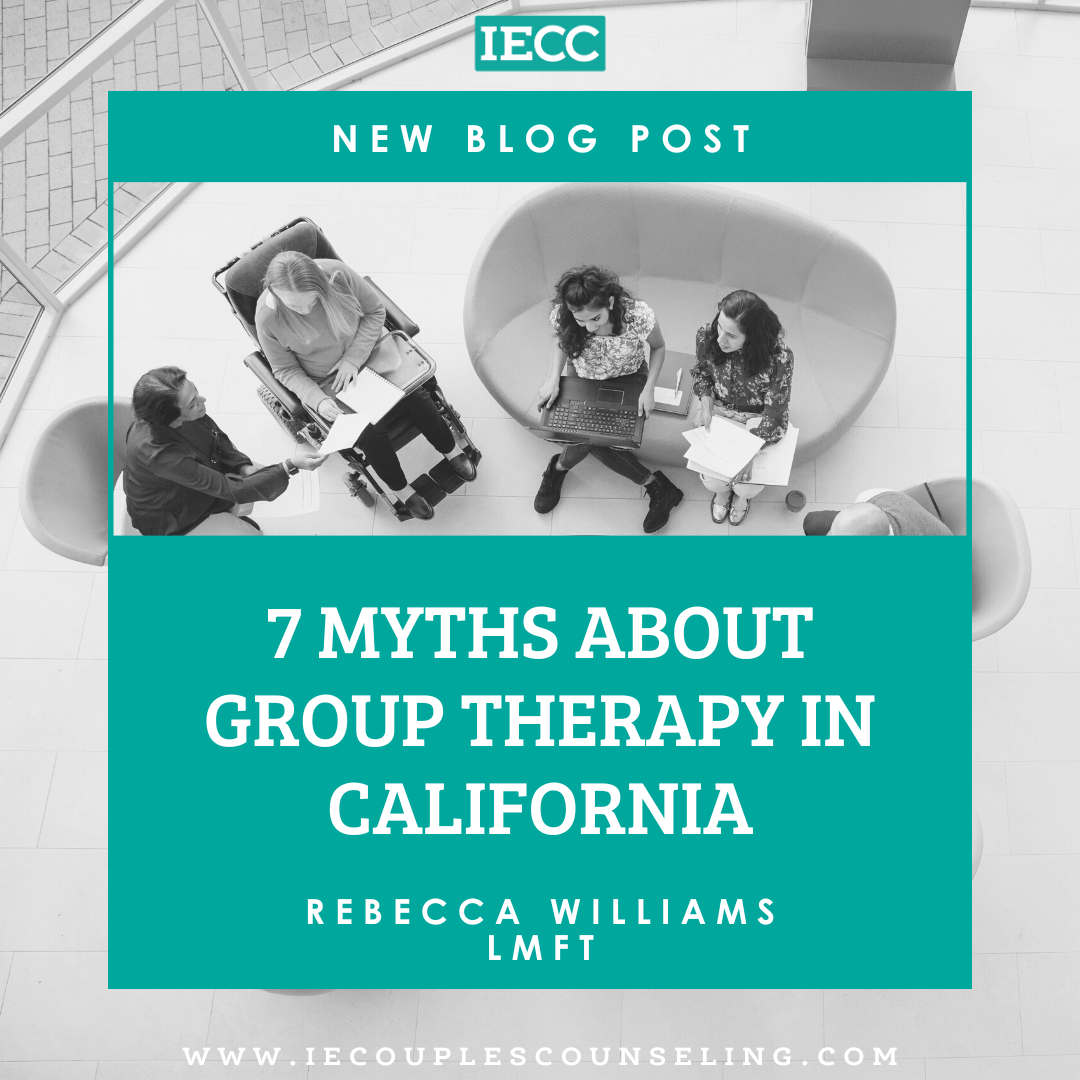7 Myths about Group Therapy in California
What is this group therapy thing all about? People who have experienced group therapy tend to LOVE group therapy. But it’s not super common so it’s hard to know what it’s about and whether it’ll be a good option for you. And, let’s be honest here, depictions of therapy groups in TV and movies get a lot wrong. In this article we’re tacking common myths about group therapy so you can know what to expect. (Include some links here to our previous posts about group therapy).
Let’s bust some myths!
Myth 1: Group therapy is not as effective as other forms of therapy
Truth: Group therapy is just as effective as other forms of therapy! In fact, sometimes group therapy can be MORE effective than other forms of therapy. If you’re wanting help with your relationship skills, group therapy is a more effective and efficient way for you to get that help than 1:1 therapy sessions.
Myth 2: Group therapy is the holding tank before you get to “real” therapy
Sometimes this is actually true, sadly. In certain managed care settings (we won’t name names here), you might be required to attend a group or class before you are allowed to see a therapist. Sometimes this is done to try to teach people some basic skills so you’ll spend fewer sessions with the therapist. And sometimes groups are used as a way to get people some help if the therapists are all full. So you go to group while you’re on a waitlist for individual therapy.
Truth: At Inland Empire Couples Counseling our groups aren’t holding tanks for waitlists. Our therapists currently have openings for individual and couple’s sessions. And when we get full, we hire more therapists. We don’t do waitlists here. We are offering group therapy because we believe it is the best way to give our clients support in improving their relationship skills, especially when they are single or have a partner who can’t or won’t participate in couple’s sessions with them.
Myth 3: Group therapy is just a bunch of whining and complaining
Truth: Our groups have structure and thoughtful topics; Read The Difference Between Support Groups and Therapy Groups. This isn’t a place where people come to just vent or complain. You’ll learn new things, discuss important ideas, and get to practice new ways of communicating. Our groups are hopeful and supportive.
Myth 4: In group therapy I will be forced to talk about things I don’t want to discuss
Truth: Your comfort and growth are our top priority. No one will trick you into disclosing things you want to remain private. At any time you can say “I’d rather not answer that” or “I’m not comfortable sharing that” and your choice will be respected. Or you may simply choose not to answer a question or join in a discussion. Your group therapist will always be available to hear your ideas about how we can make the experience better for you.
Myth 5: If I go to group therapy, everyone will know my business
Truth: You only share what you want to share. Our therapists are bound by law and our ethical codes to not disclose any information about you without your consent (except as required by law, we’re mandated reporters). We ask our group members to abide by The Vegas Rule: “What happens in group stays in group.”
Myth 6: In group therapy I’ll get less time with the therapist. And less attention for me means less growth
Truth: You will get fewer 1:1 minutes with the therapist in group therapy than if you were meeting with that therapist in individual sessions. AND YET, that definitely does not mean you have fewer opportunities for growth!
For starters, 1:1 sessions in our office are 50 minutes each week, and group therapy sessions are two hours each week.
You will have the opportunity to learn from the other members of the group. Therapists aren’t the only people who can offer support and who have good ideas about relationships. You might be surprised at how much you learn from other group members and how much they say they learn from you.
You will get to practice your new skills with other group members.
You will learn from watching others practice new skills and from the questions they ask that you didn’t think to ask. Sometimes we can see things we need to change when we observe them in others in ways we just can’t see when we’re looking at ourselves.
Myth 7: Group therapy is more expensive
Truth: While there’s a lot to gain from group therapy that you can’t get from individual therapy, it’s actually less expensive.
At our current rates, 2 hours of therapy per week for 8 weeks would cost $2720. With our therapy groups starting September 2023, you get 2 hours of therapy per week for 8 weeks for $680.
At Inland Empire Couples Counseling we offer the best marriage counseling we can! Our couples therapists are trained in helping couples heal from infidelity, substance use in relationships, childhood trauma, communication skills, as well as providing the LGBTQIA+ community with pride counseling. We have online couples counseling in California. We have couples therapy in Riverside, CA. We also have marriage counseling in Murrieta CA or the Temecula Valley. Please reach out for help by clicking the button below to schedule a free 15 minute consultation with our Intake Coordinator.
Have questions about couples counseling? Visit our FAQs page to find out more.


